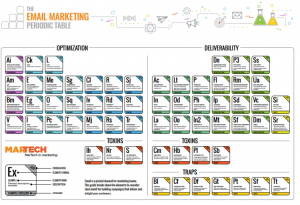If someone tells you money isn’t always the answer to business-related problems, they’re straight-out lying. You need money to check off any objective from your to-do list – whether it’s to found a startup, launch a new marketing campaign, or simply keep your business afloat for another month.
Unfortunately, the traditional means of raising funds aren’t as viable as they once were. Sure, obtaining a business loan is still worth a shot if you have plenty of time to spare. But if you want to be realistic, you should seek other ways to raise funds for your business projects. After all, when it comes to business, you should never settle in your comfort zone and be brave to try new things.
Below is a short list of alternative fundraising strategies you ought to try:
Distant Family and Friends
As you read this, you may have approached some of your closest friends and family for money. What you need to do now is to check further and look for distant connections that might be interested in your company. Consider everyone you can think of – be it a college friend, your spouse’s cousin, or someone you met at a trade show.
Prioritize people who are capable of shelling out cash along with those who’ve shown interest in your brand. Also check your Facebook friends who liked your business page or bought your product before.
Just remember to keep your proposal simple and easy to understand, especially if you include laymen in your fundraising campaign. Here is a guide from SBA for more tips on how to successfully raise funds from friends or family.
ROBS
According to conventional wisdom, retirement accounts are some of the securest investments anyone can make. But if you’re willing to trade a comfortable future for an amazing one, then you should consider leveraging a rollover as business startup or ROBS to fund your business.
In simple terms, ROBS means using funds from your 401(k) or IRA account to buy stocks in your C Corporation startup or business. Since it isn’t a loan, you don’t have to pay interest when using ROBS. However, you can’t use a retirement account from your current employer. To rollover funds, the retirement account must be from a previous employer or your IRA.
Also take note that there’s a possibility that your business will fail, causing you to lose all your investments in the process. That’s why you should opt for a ROBS provider to help you assess the risks and avoid any legal problems.
Business Credit Card
Although credit cards are not ideal for long-term use, they are great for covering small financial gaps in your business and personal life. They are also relatively easy to obtain, which is why about 67% of small business owners use them.
As a rule of thumb, be sure you pick the right card with a cash-back plan that fits your needs.
For example, if your business is in need of major expansion, you can use a card with a bigger cash-back spending limit to save more money. Alternatively, you can choose a company that provides free employee cards to maximize savings on day-to-day business expenses.
Non-Cash Assets
Finally, selling non-cash assets is a surefire way of obtaining funds. As a business owner, it’s difficult to let go of certain assets, especially if they have sentimental value. But if you really need to fund a business project, then you need to get over your emotions sooner rather than later.
Remember that assets depreciate over time, which is why you shouldn’t wait to sell an asset that’s no longer beneficial to the company. The better their condition, the easier it is to sell them for their fair market value. And if you value your business more than anything, look for personal assets that can also be sold for cash. It will be just like putting your personal money into your business – fast, reliable, and most importantly, realistic.
Business & Finance Articles on Business 2 Community(22)






